How two brothers from a Russian province founded Hollywood
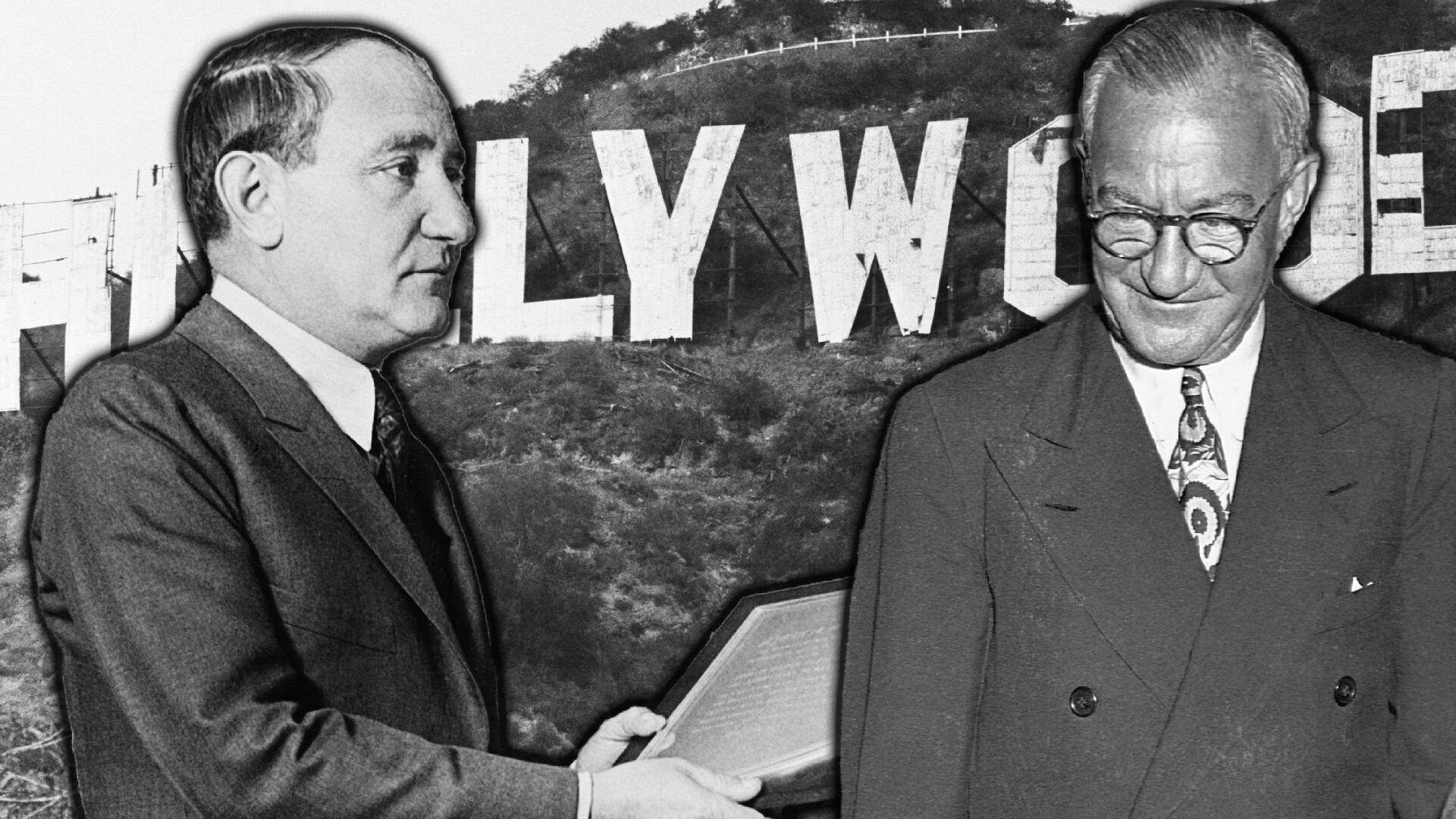
Ossip and Nikolay Schenker were born three years apart into a poor Jewish family in 1878 and 1881, in the small town of Rybinsk on the Volga River. Their father was a manager at the Volga shipping company office. At the beginning of the 1890s, the boys with their parents were among the Jewish refugees who sailed through Europe to America, which really became “the land of opportunity” for them.
Joseph and Nicholas
Unlike many immigrants who live reminiscing of their homeland, the brothers quickly adapted to their new reality. They even changed their names to sound American – in New York they became Joseph and Nicholas Schenck. It was under these names that they acquired their fame.
In the new country, everyone had to work, so the Russian teenagers had their share, too. In the mornings, they sold newspapers on the streets and went to school in the evenings. Their entrepreneurial talent showed itself at a young age: after working in a drugstore as assistant pharmacists for two years, they bought the drugstore out for $600 and re-sold it three months later for almost six times the price. Joseph wasn’t even 20 at that time.
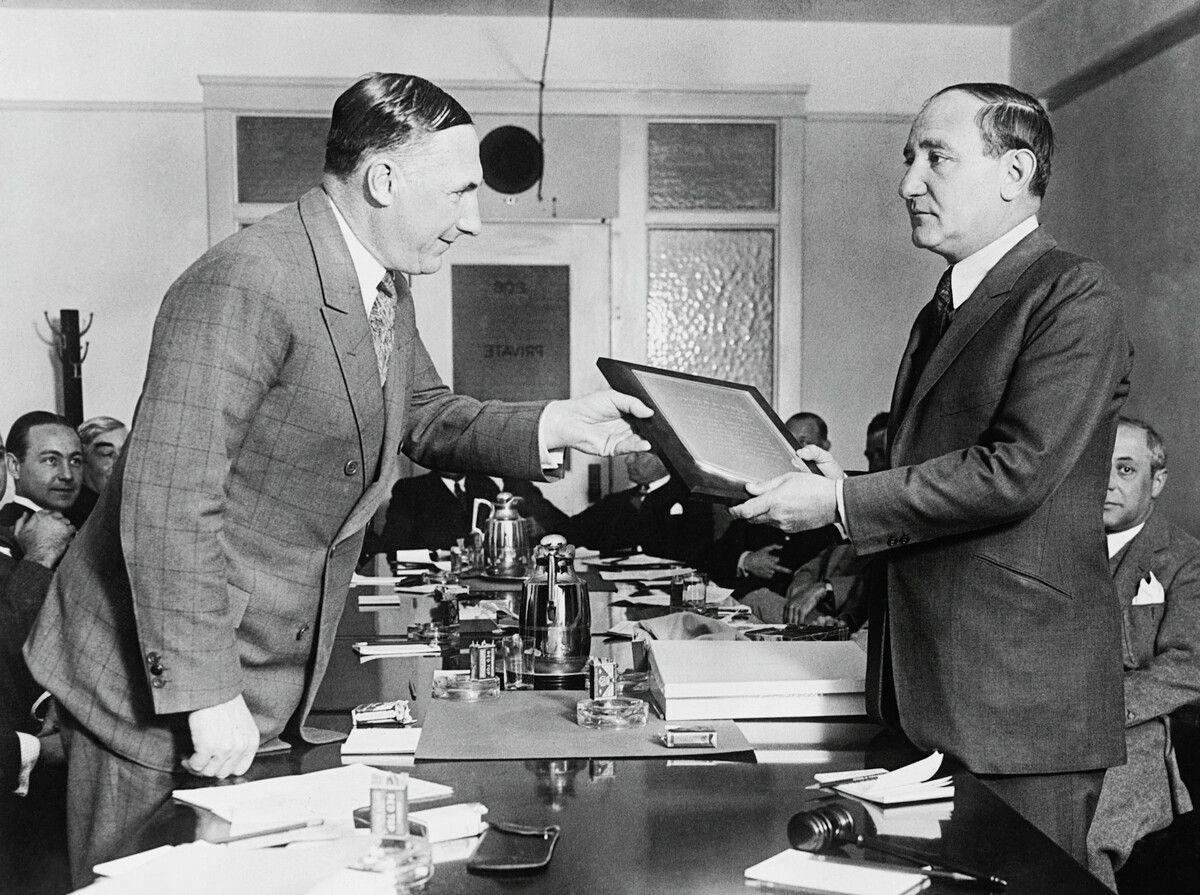 Joseph M. Schenick (R) is being awarded with silver plaque in recognition of his services as president of the Association of Motion Picture producers of California, Los Angeles, 1925
Joseph M. Schenick (R) is being awarded with silver plaque in recognition of his services as president of the Association of Motion Picture producers of California, Los Angeles, 1925
The brothers spent the money they earned traveling around Europe. When they returned, they started selling alcohol. Their acquaintance with a park owner, Marcus Loew, became the turning point of their lives. At the time, Loew had already made a small fortune on slot machines and nickelodeons – movie theaters where movies were shown for a nickel coin (five cents). The entrepreneur lent the brothers money to open several extreme attractions. The Schencks felt the people’s need for entertainment and saw great potential for development in this field. They built dance floors, bars, and attractions. In 1906, they began the construction of the ‘Paradise Park’ at the highest point of Manhattan that became one of the most popular places for leisure and love declarations; then, they built another one.
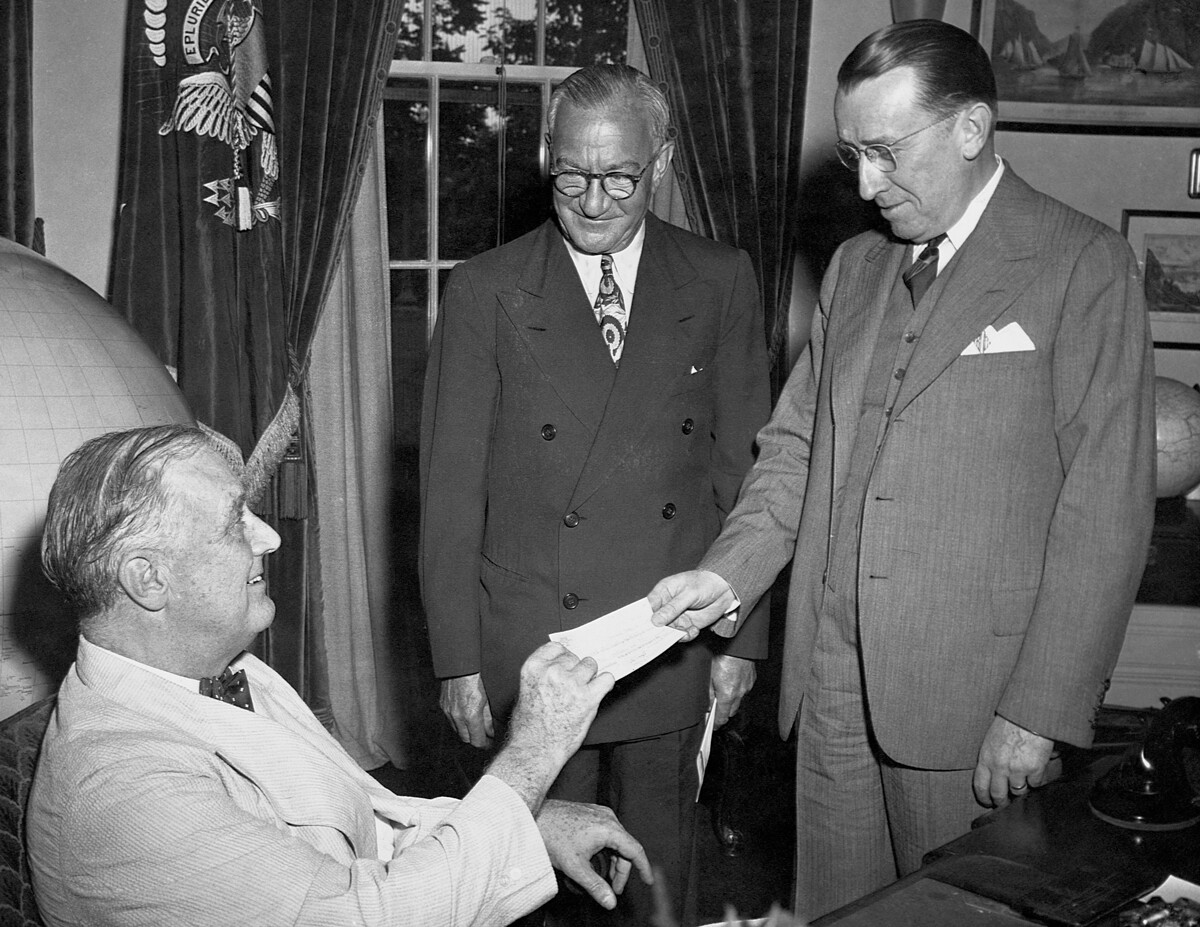 President Roosevelt received a check for one million dollars from Basil O'Connor and Nicholas M. Schenck, 1933
President Roosevelt received a check for one million dollars from Basil O'Connor and Nicholas M. Schenck, 1933
All this time, the brothers studied cinema and invested in it. This young art that was developing rapidly later brought the brothers tremendous money and fame, but, at that moment, it separated them. In 1916, Joseph married silent movie star Norma Talmadge and moved to California. Nicholas stayed in New York, working under Marcus Loew at his quickly growing cinema business – by that time, the entrepreneur owned 119 movie theaters in the U.S. and Canada.
New entertainment
In 1924, Loew bought three movie companies. He and Nicholas hired a team of professionals and merged the studios. The new company became known to the world as Metro-Goldwyn-Mayer. After Loew’s death in 1927, Nicholas headed the corporation and continued to develop it.
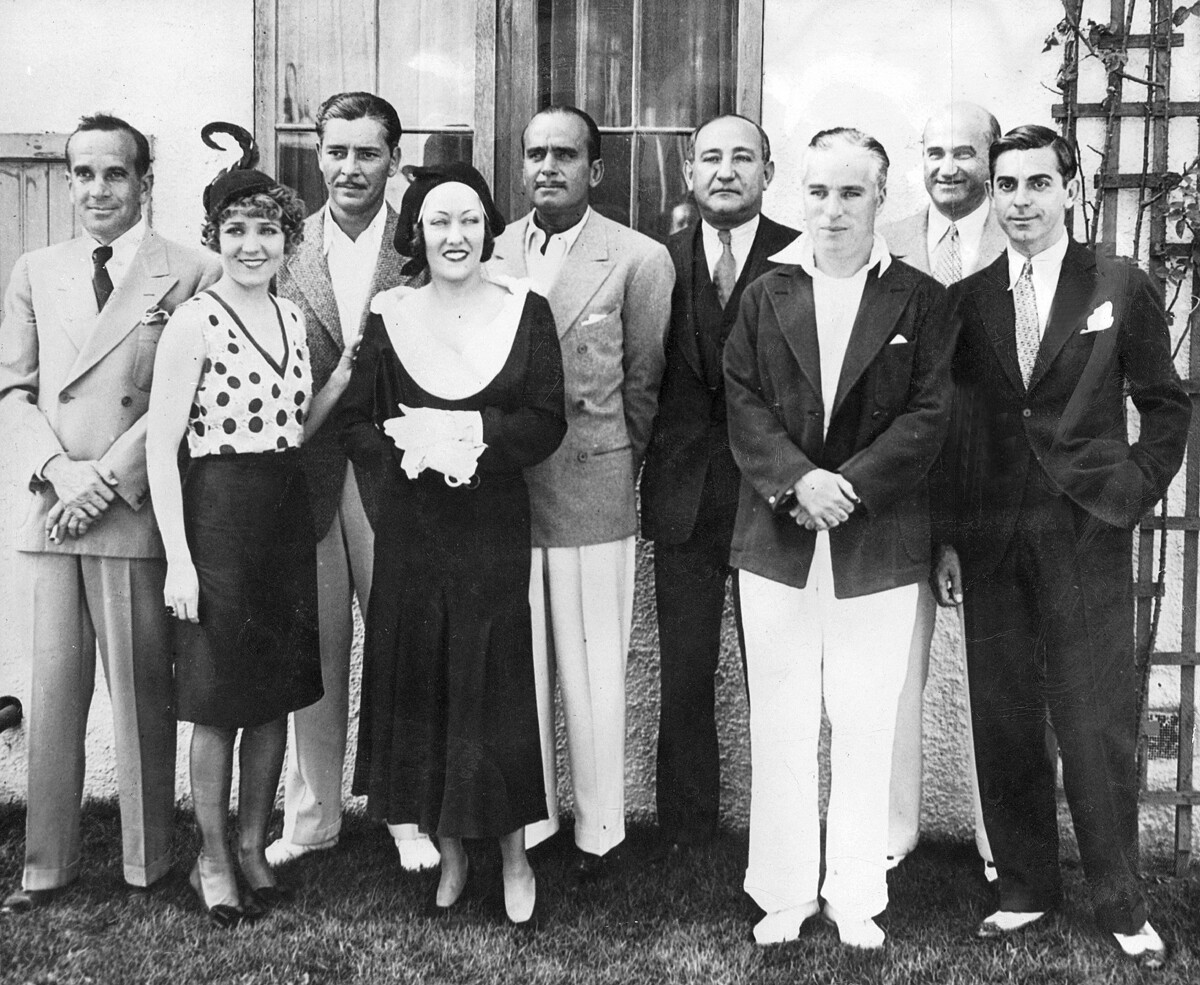 Actors and producers of the United Artists Corporation (Joseph M. Schenck, Charles Chaplin pictured 4th and 3rd from right). Los Angeles, 1930
Actors and producers of the United Artists Corporation (Joseph M. Schenck, Charles Chaplin pictured 4th and 3rd from right). Los Angeles, 1930
At this time, Joseph, at the invitation of Charlie Chaplin, Mary Pickford and Douglas Fairbanks, became the president of the United Artists film company. Before him, it was almost a chamber studio that released about eight films per year. Joseph reorganized it, invited new stars and producers. In 1927, Howard Hughes’ movie ‘Two Arabian Knights’ earned UA its first Academy Award.
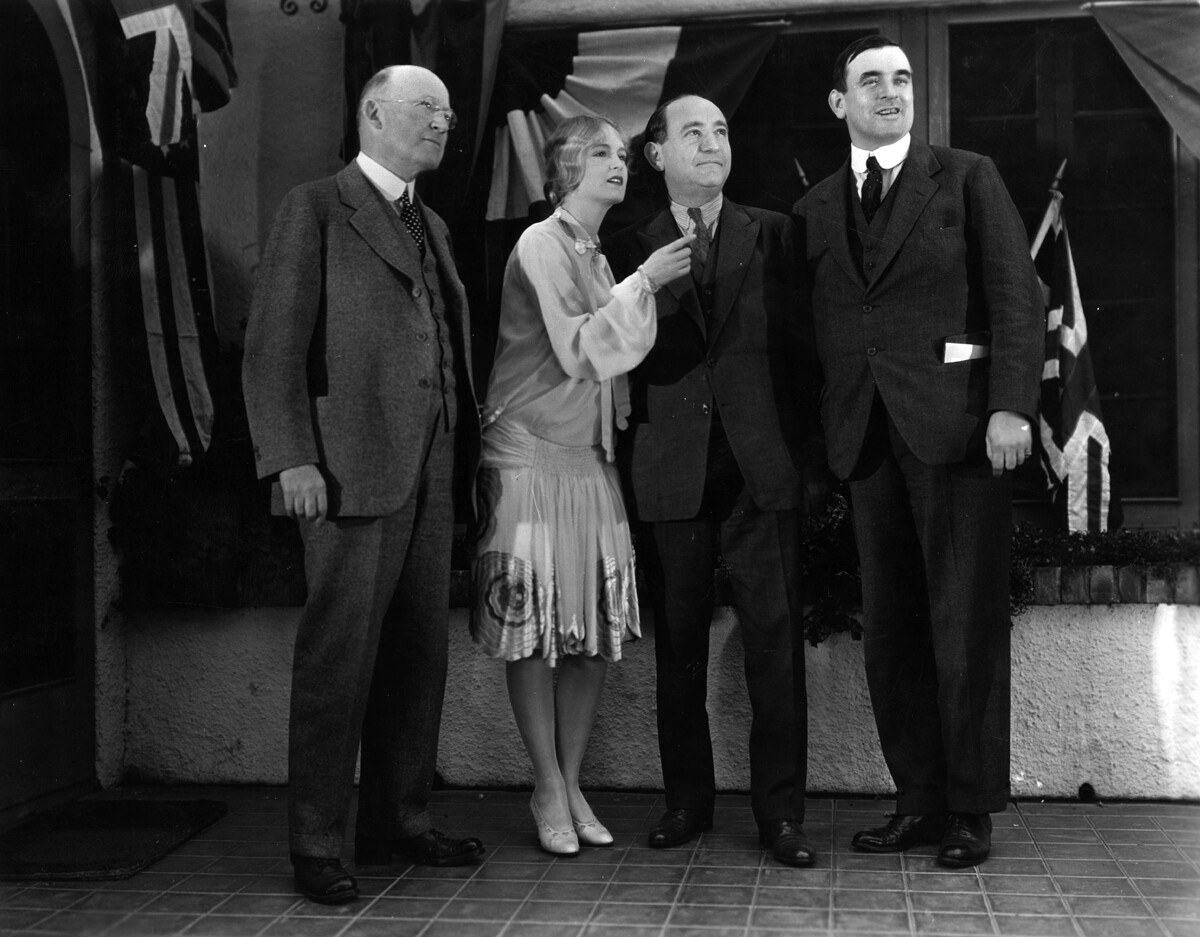 Joseph Schenck (2nd from right) welcoming members of the British press to Hollywood as chairman of United Artists, 1929
Joseph Schenck (2nd from right) welcoming members of the British press to Hollywood as chairman of United Artists, 1929
The appearance of sound in cinema in the 1930s delivered a blow to the studio, which had put an emphasis on silent movies, but Schenck managed to keep it afloat. In three years, Joseph, along with the former Warner Bros studio executive Darryl Zanuck, founded an independent producer company 20th Century Pictures. Its success helped UA grow its profits and, in two years, 20th Century Pictures merged with Fox Film Corporation, forming a new corporation called ‘20th Century Fox’.
At that moment, the brothers were already among the most influential people in Hollywood. Joseph had such political weight that he could influence the decisions of the state authorities. It was him who led the struggle against the introduction of a 35% income tax in California, threatening the authorities to move his giant movie money to Florida.
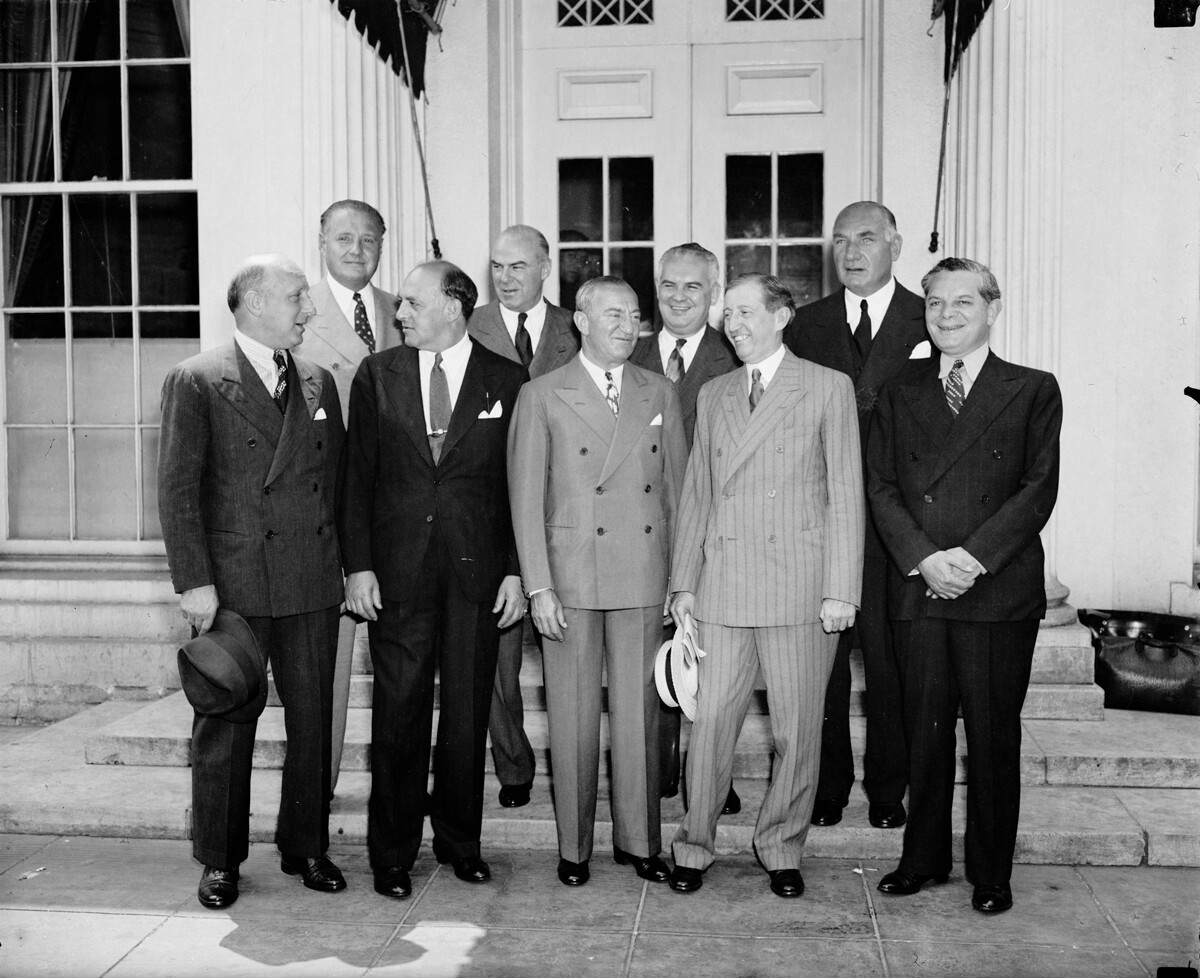 A group of motion picture company executives after a conference with President Roosevelt. Nicholas M. Schenck is pictured in the middle of the front row, 1938
A group of motion picture company executives after a conference with President Roosevelt. Nicholas M. Schenck is pictured in the middle of the front row, 1938
In 1952, Joseph was awarded an Oscar for his contribution to the movie industry; soon after, he retired, suffered a stroke and couldn’t recover anymore. He died in 1961 and Marilyn Monroe, who the world discovered from his movie ‘All About Eve’, bought his mansion in Los Angeles after his death.
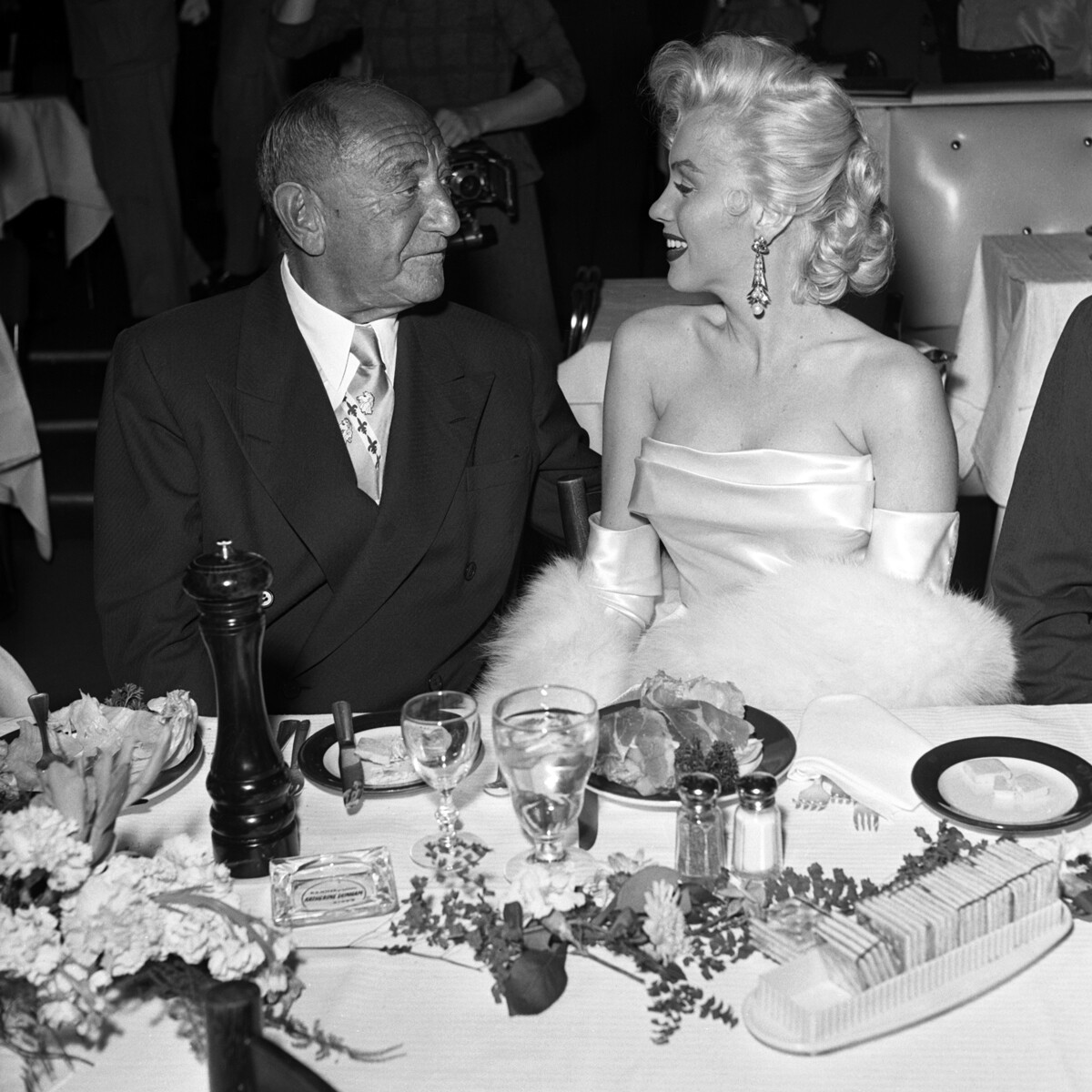 Joseph Schenck and Marilyn Monroe at Walter Winchell birthday party, 1953
Joseph Schenck and Marilyn Monroe at Walter Winchell birthday party, 1953
Nicholas outlived his brother by eight years. He continued to head Metro-Goldwyn-Mayer until 1955, after which he surrendered his seat to the son of the founder – Arthur Loew. The last years of his life Nicholas spent at his luxurious estates in Long Island and Miami Beach, where he died.
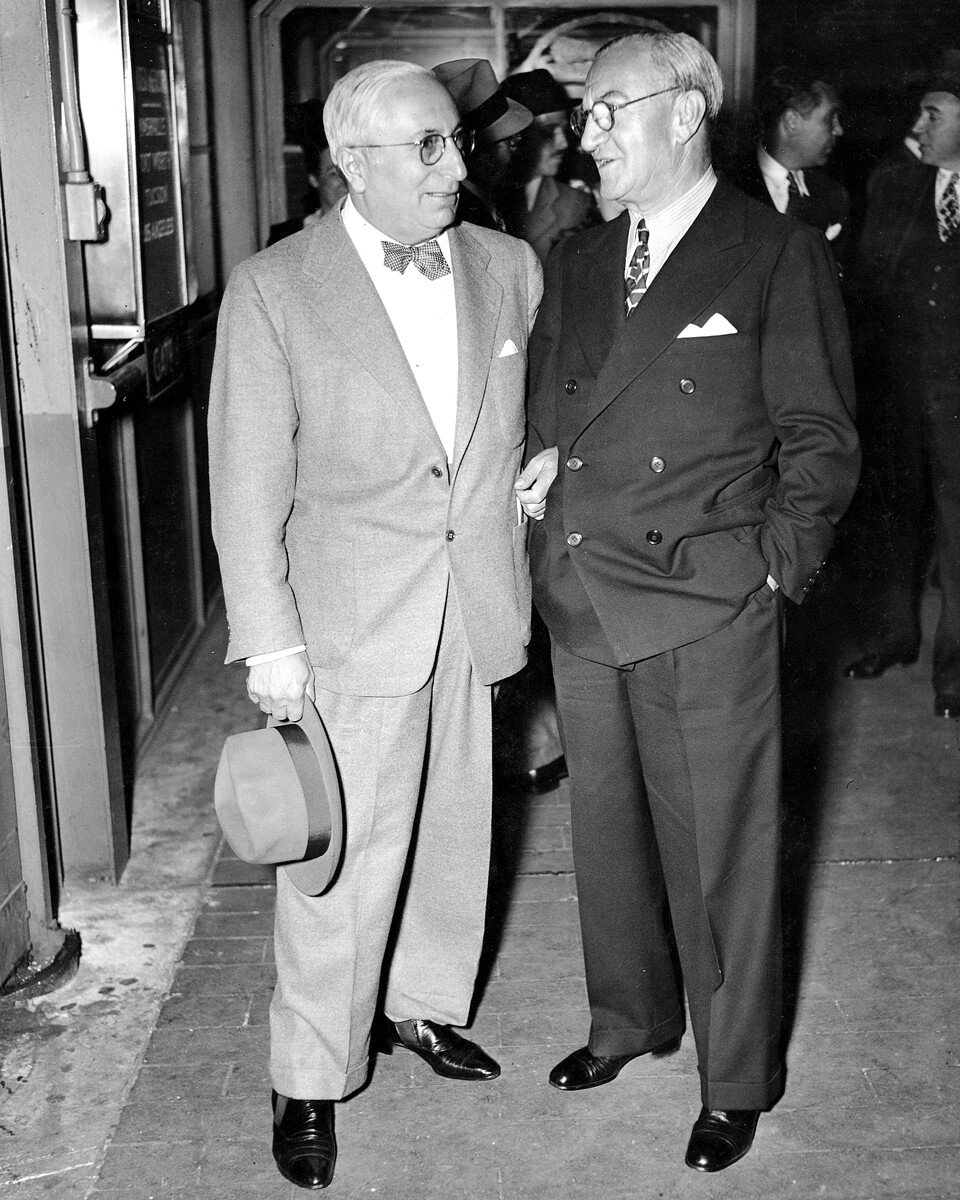 Louis B. Mayer and Nicholas Schenck (R), 1941
Louis B. Mayer and Nicholas Schenck (R), 1941

